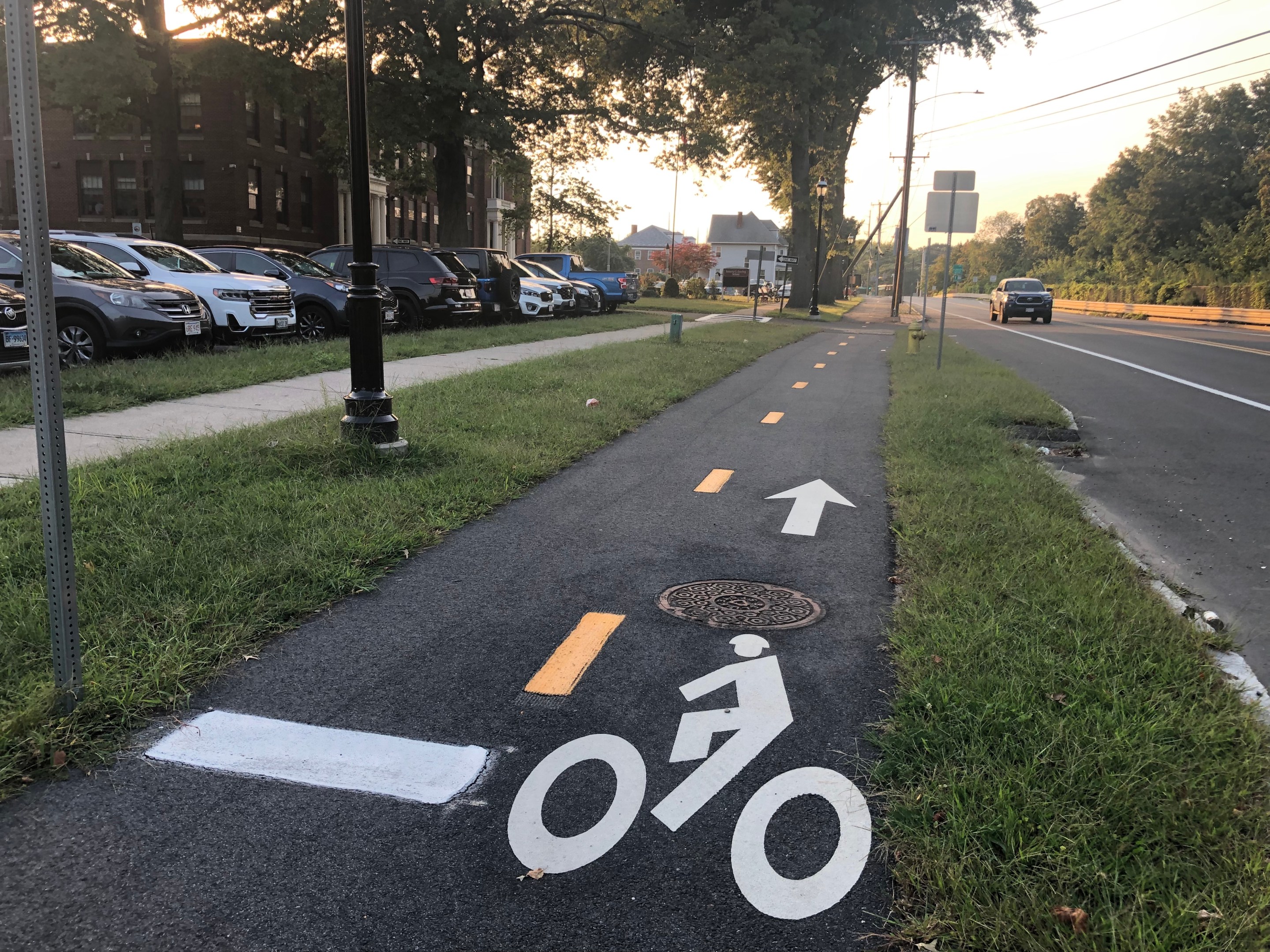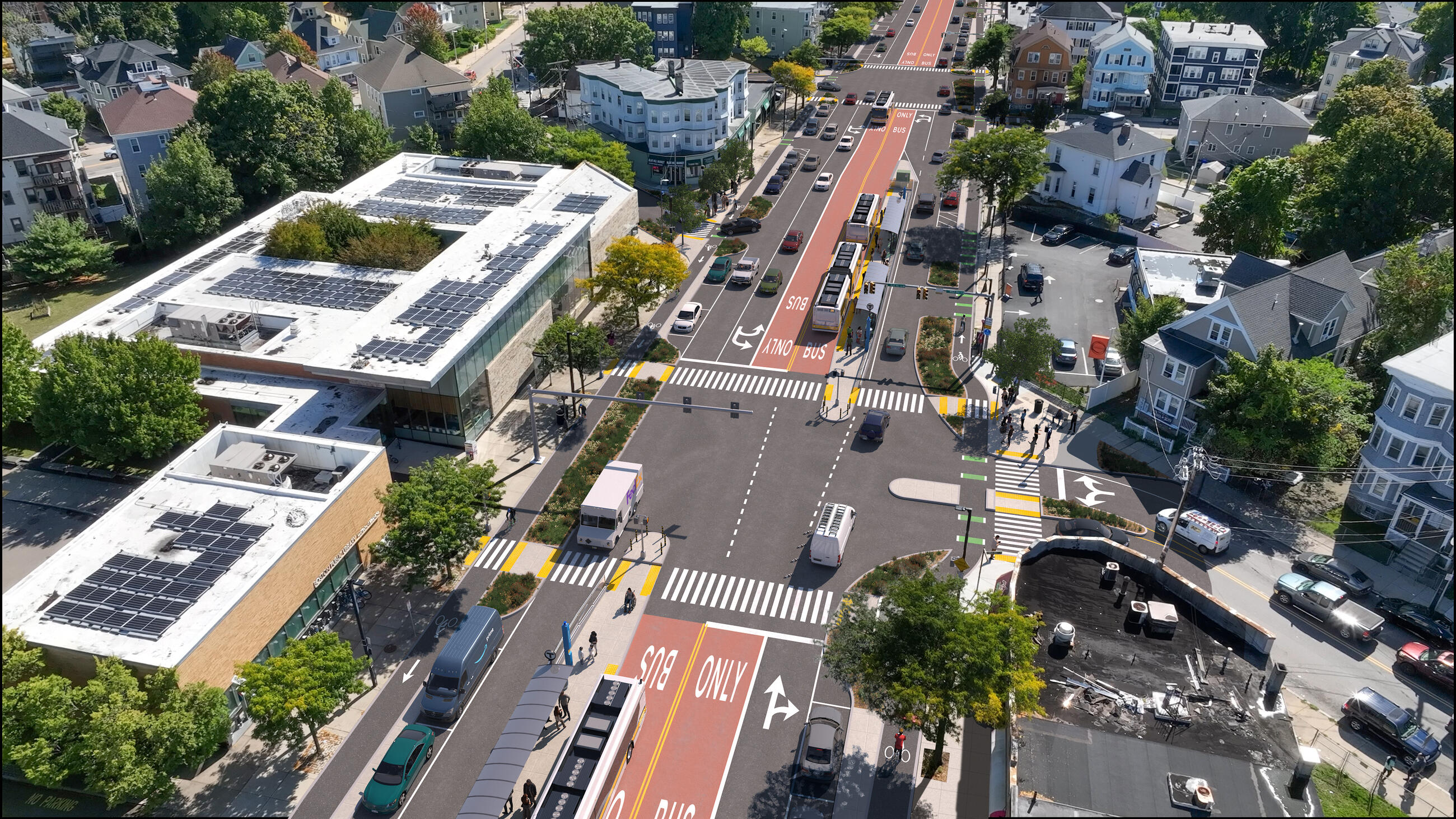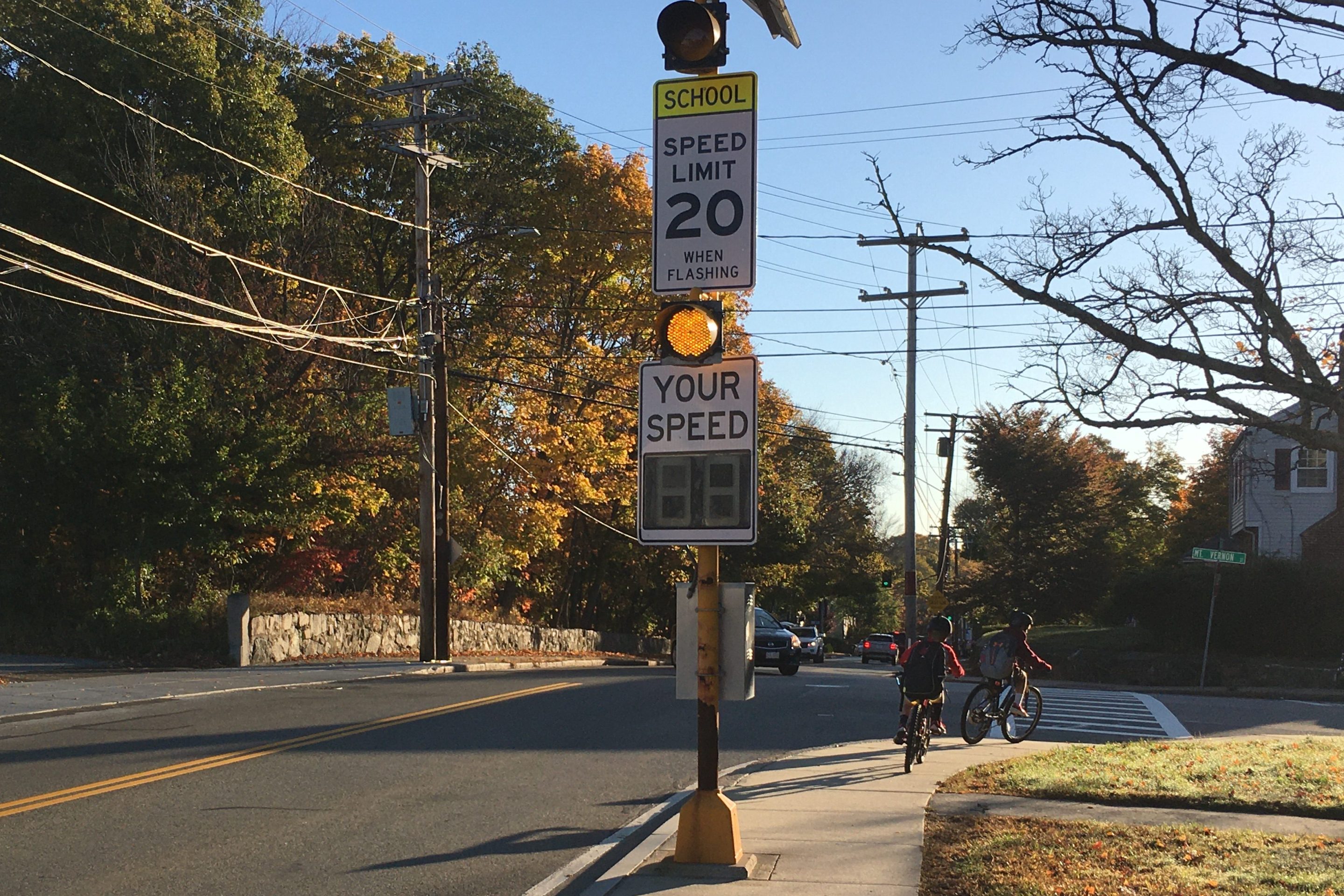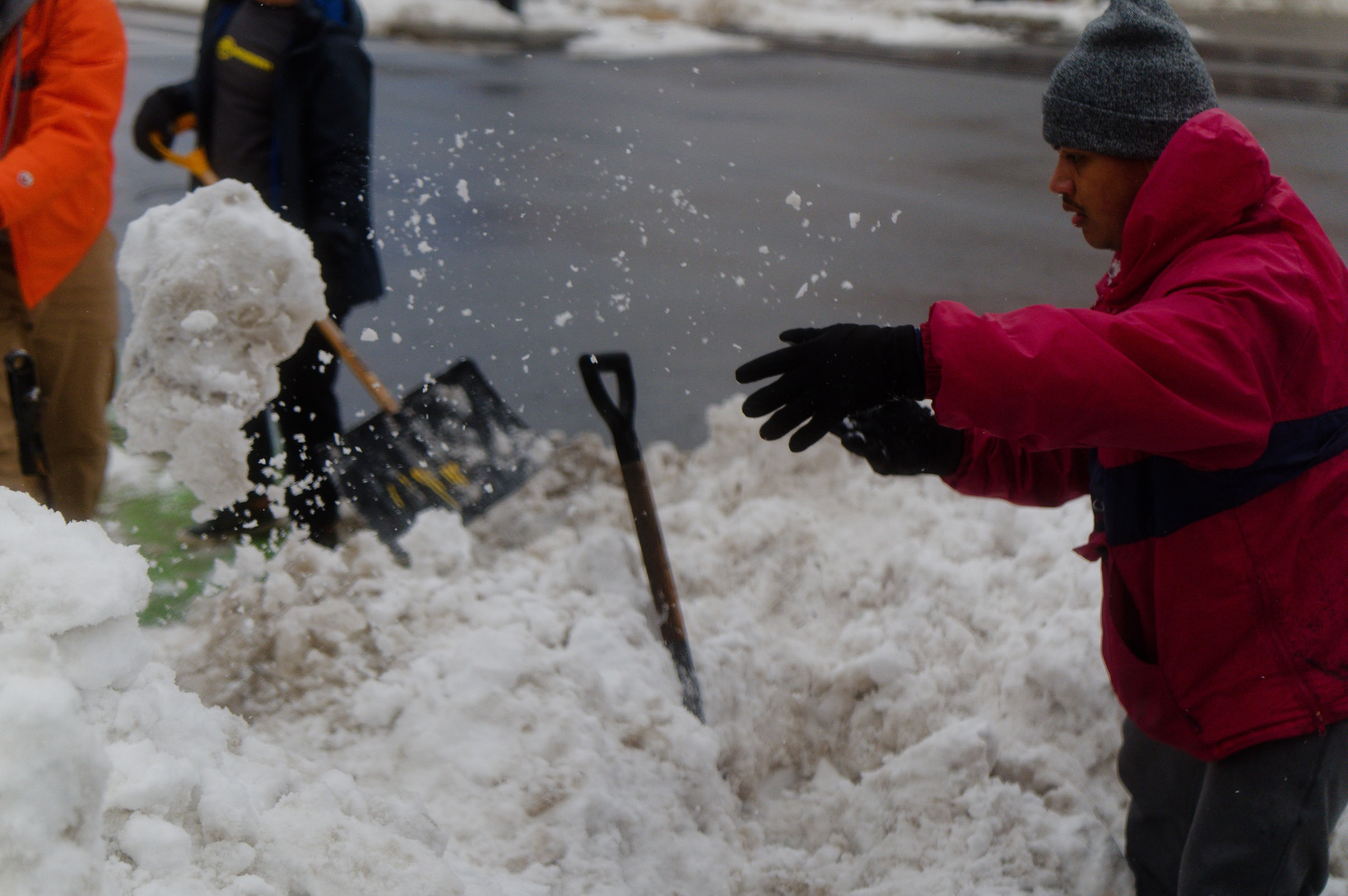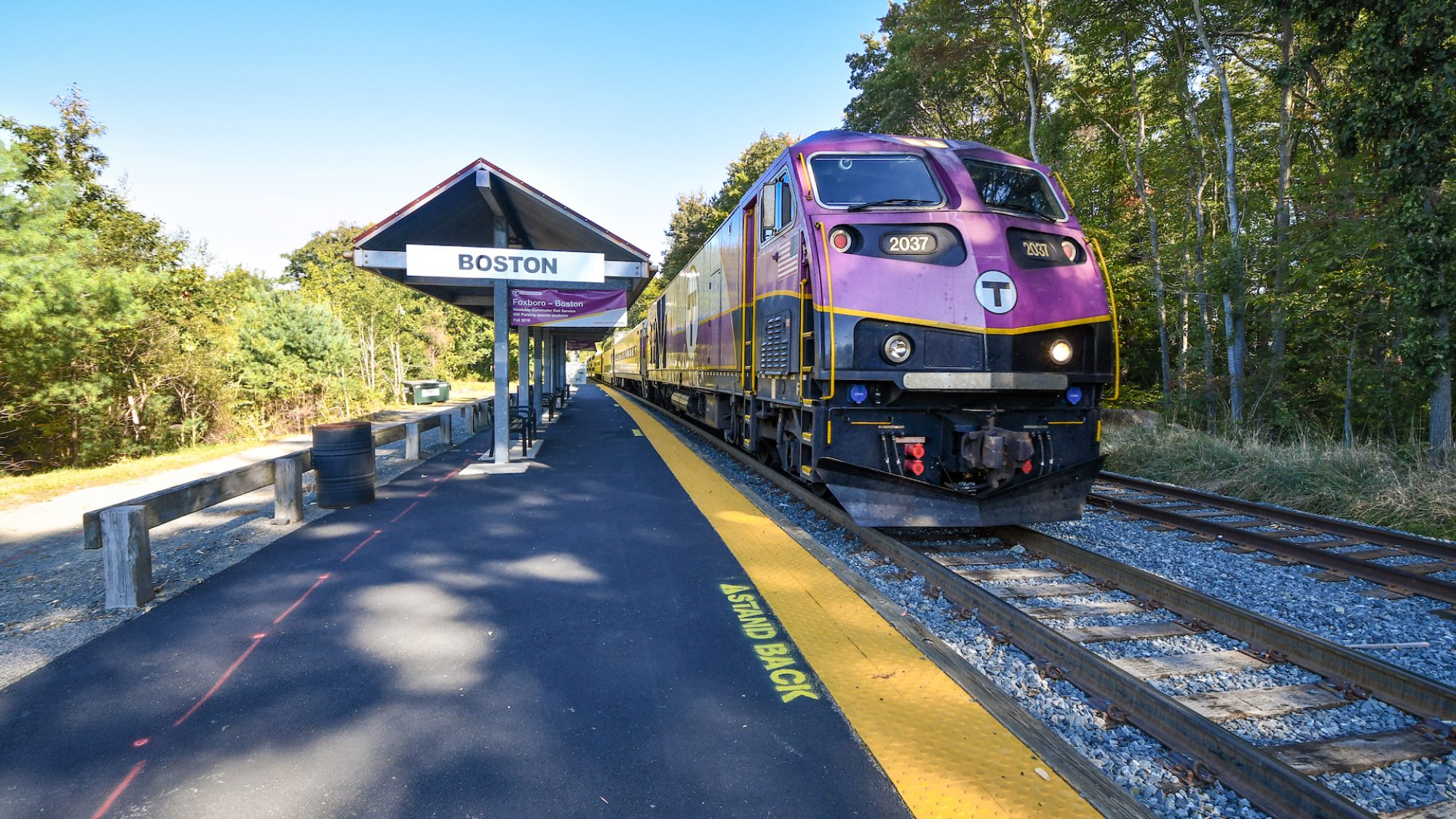While we were in Westfield last week to check out the new Columbia Greenway, we also visited nearby Agawam, a suburb of Springfield, to check out some new Dutch-style infrastructure that MassDOT recently built there.
During the pandemic, the state replaced the Morgan-Sullivan Bridge that spans the Westfield River between the towns of Agawam and West Springfield, and also reconstructed several adjacent streets and intersections.
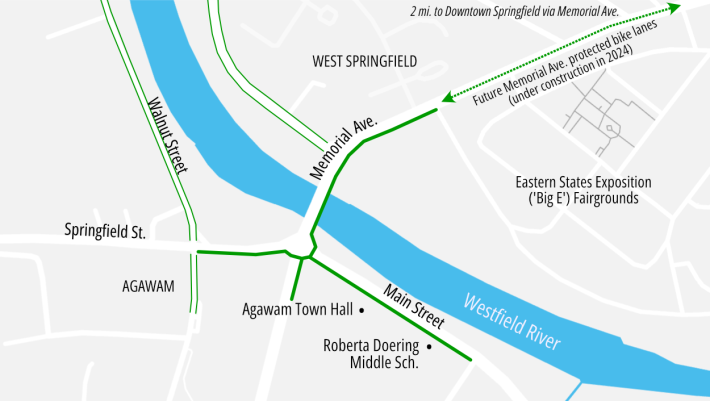
In accordance with MassDOT's new design standards, the project also created new sidewalks where very few existed before, in addition to new two-way, physically-separated bikeways on adjoining parts of Springfield Street, Main Street, Suffield Street, and Memorial Avenue across the new bridge.
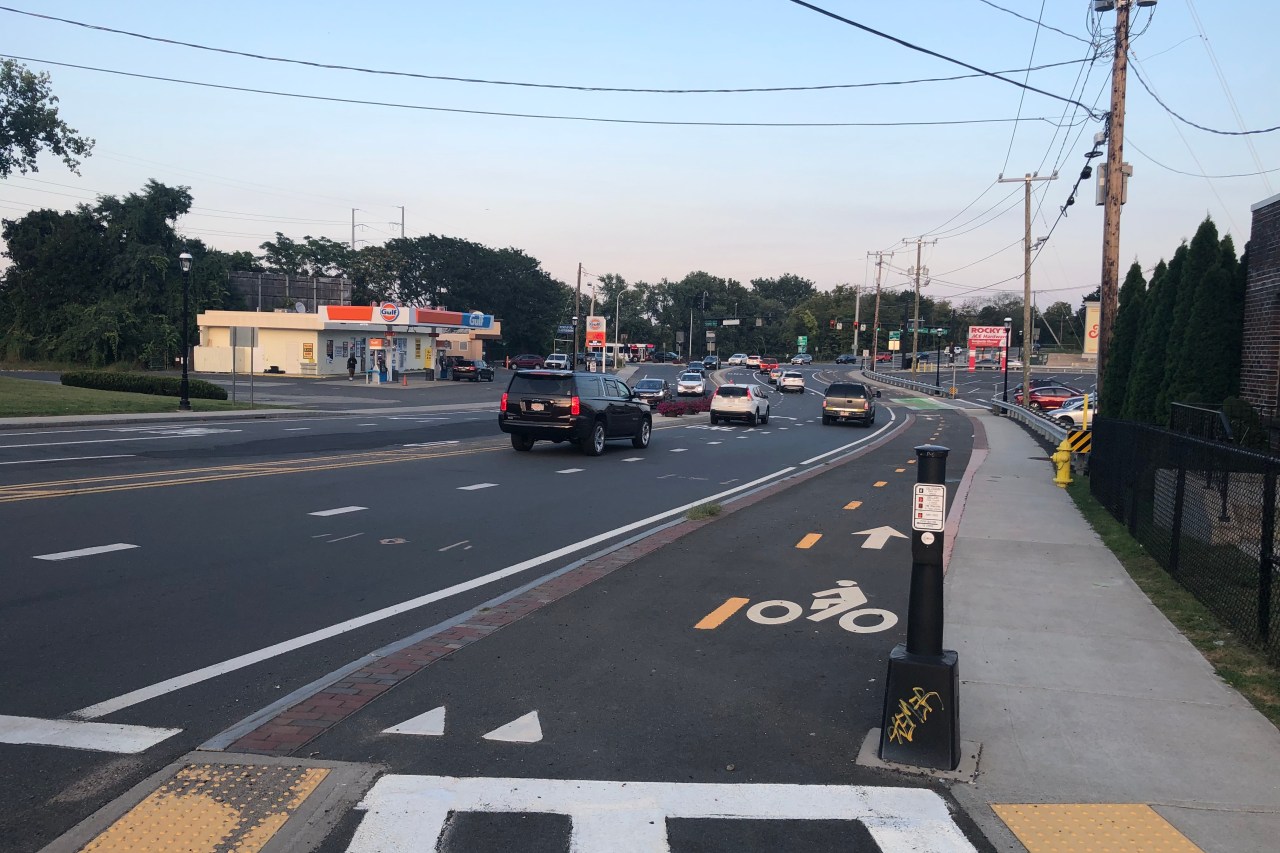
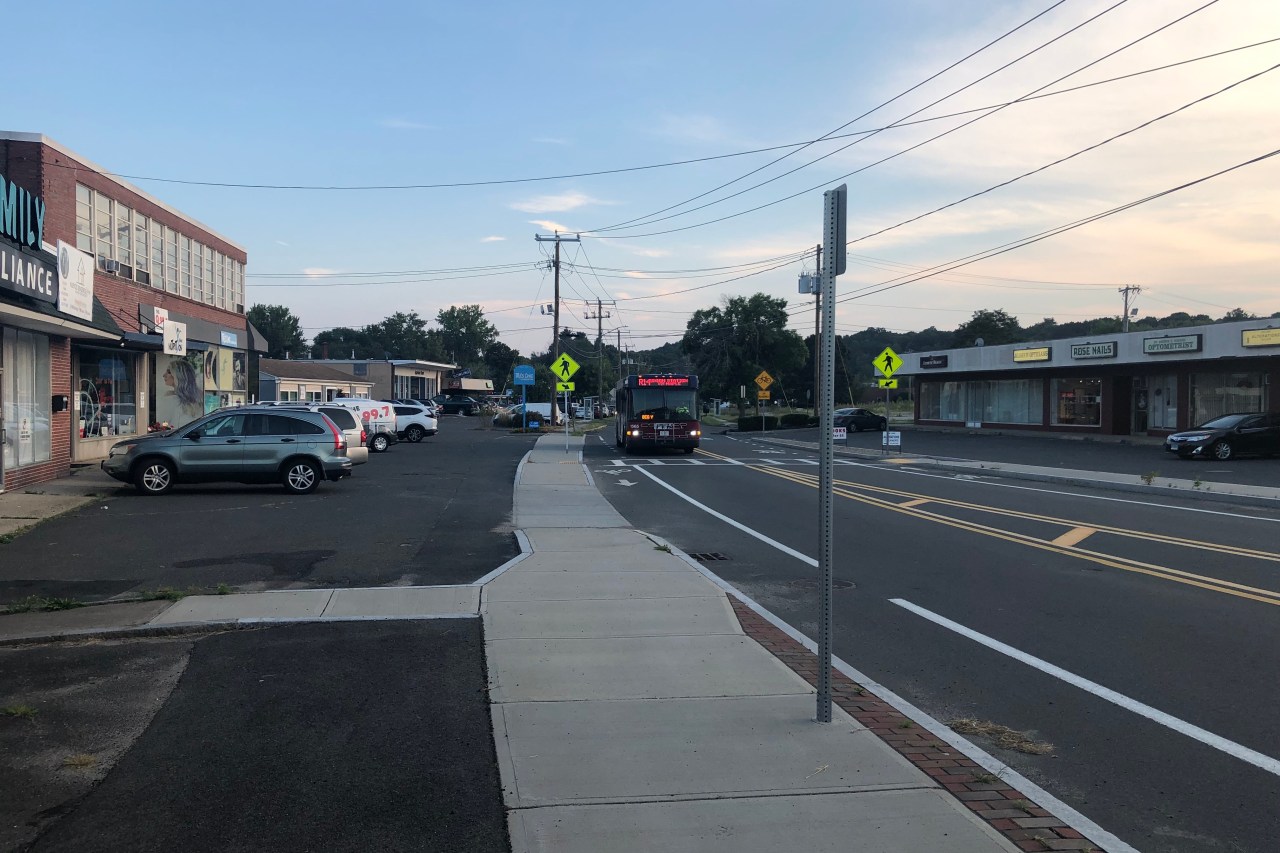
It's still a very suburban area, with lots of strip malls and big parking lots, but the new infrastructure at least makes it possible for Agawam residents to access a lot more small businesses, in addition to the town's middle school and town hall, without a car.
Another MassDOT project, which will go under construction in the next few months, will rebuild the entire length of Memorial Avenue through West Springfield on the northern side of the new bridge, and extend the sidewalk improvements and new bicycling facilities all the way the banks of the Connecticut River, just across from downtown Springfield.
